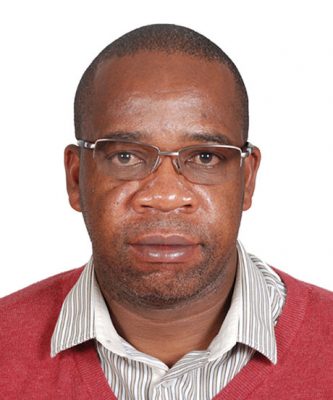MINING communities are also exposed to the COVID 19 pandemic and need social safety nets in the form of financial support and personal protective clothing (PPE), the Zimbabwe Environmental Law Association (ZELA) has said.
STAFF WRITER
In an interview with Mining Zimbabwe, Mutuso Dhliwayo the ZELA executive director said a recent study by his organisation (ZELA) has revealed that the livelihoods of people that live in mineral resource-rich communities are threatened as there is inadequate assistance given to them from the resources mobilized to combat COVID 19 despite them living in resource-rich areas.
These include financial bailout packages from the government as well as mining companies extracting mineral resources from their communities.
For instance, apart from environmental degradation that mining activities can cause to their communities, people living in such areas can be susceptible to dust and other finely powdered materials which can lead to respiratory illnesses to miners and mining communities, hence the need for adequate support and preventative measures during the COVID 19 period.
“We have been to Marange communities which is a place blessed with diamond resources, but people are struggling there in terms of adapting to the COVID 19 pandemic because they are not getting any financial and other support,” Dhliwayo said.
“At Arda Transau where people displaced from diamond mining areas were relocated they did not have running water and electricity despite that water is pivotal to combat COVID 19. We are talking of a pandemic where effective hand washing using clean water is emphasized, but it was not available at Arda Transau,” he said.
ZELA had to get a Court Order granted last week to compel the Zimbabwe Electricity Supply Authority and the Zimbabwe National Water Authority (ZINWA) to reconnect electricity and water to ensure supplies for the community.
“We need the country to be able to use mining revenues to mitigate the pandemic and those communities in mining areas should benefit. The mineral resources should do a lot in terms of assisting communities during disasters such as COVID 19 as part of corporate social responsibility,” he said.
Dhliwayo said a good approach would be for the government to come up with policies such as Community Share Ownership Trusts (CSOTs). The aspect of CSOTs had all along been included in the Indigenisation law were businesses extracting minerals were supposed to avail 10 percent of shares to CSOTs.
“There is need for policies that ensure that CSOTs get percentage shares. Unfortunately, that has been repealed from the Indigenisation law through amendments to the Finance Act. If mining communities can get money from CSOTs, they will be able to manage those resources to use them in times of disasters such as COVID 19. These pandemics or natural disasters might be on-going or recur, but if we manage our natural resources like minerals well we will be able to provide social safety nets for communities,” Dhliwayo said.
Last year, former Minister of Industry, Mangaliso Ndlovu told Parliament that after the amendments on the Finance Act, it will no longer be mandatory for investors in the mineral or other natural resource extractive industries to remit 10 percent of shares to CSOTs.
Ndlovu said even with the Indigenisation regulations in place, there was no adherence to supporting CSOTs as companies only paid US$39 million to CSOTs against assurances they had made to pay US$129 million.
Dhliwayo said there is a need for transparency and openness on mineral revenues so that the country’s resources can cushion mining communities and the country at large during disasters such as COVID 19.
Centre for Alternative Development coordinator Melania Chiponda said good corporate social responsibility by mining companies towards communities can actually generate social acceptance of their mining activities.
Chiponda said women living in mining communities were the worst affected by the COVID 19 lockdown and needed urgent financial and social support.
“Women in the mining sector are disproportionately affected by the COVID 19 lockdown and the pandemic in general. Firstly; because a lot of the women’s livelihoods depend on the informal mining activities. Therefore, the ‘shutting down’ of their places of work has resulted in increases in poverty levels. They need financial support during the lockdown period,” Chiponda said.
She said since most mining activities take place in rural areas, other problems that women in mining communities suffered include transport to get to healthcare centres where they can get medication and healthcare facilities.
While more assistance is needed for mining communities, a recent report by ZELA on COVID 19 Mining Sector and Communities Situational Report stated that some mining companies such as UNKI Mine in Shurugwi, Mimosa Mines, Zimplats, Blanket Mine, South Mining and the Chamber of Mines have given financial and other support in kind to government and their communities as assistance to prevent against COVID 19.
In their recommendations, ZELA said ‘mining companies must extend their corporate social responsibility activities and assistance on COVID 19 to mining communities in which they are operating from and where some of their workers might be living. Help must be given to the local hospitals and clinics in the form of equipment, PPEs, and other resources so that the local clinics have the capacity to prevent and contain the virus’.
This article first appearedin the June 2020 Issue of Mining Zimbabwe





